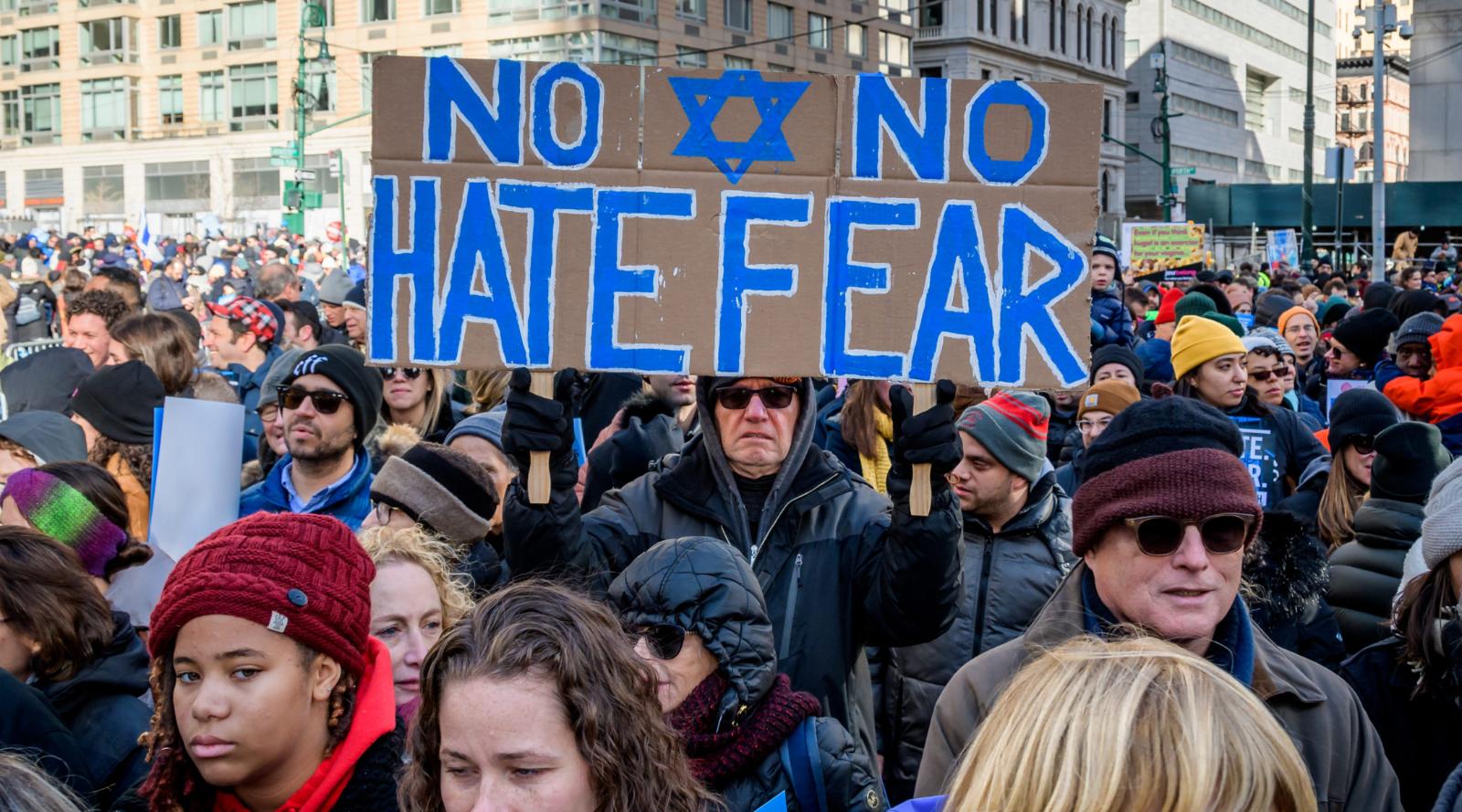Antisemitism, the evil which must not be named
The multifaceted nature of the “oldest hatred” makes it difficult to combat because it means different things to different people and is too often disguised by blaming the victims.
by Matthew M. Hausman

Despite laudatory coverage of the “No Hate, No Fear” Solidarity March against antisemitism in New York last month, none in the political or media establishments have acknowledged their complicity in facilitating Jew-hatred and shielding its purveyors. For many progressives, the rally cry “no hate, no fear” was a platitude used to obscure their own biases and excuse identity communities where antisemitism is flourishing. And few of the mainstream commentators professing support showed any self-awareness given their initial efforts to blame the deadly assaults against Jews in Monsey, NY and Jersey City, NJ on white supremacism, right-wing extremism or President Trump, when in fact they were perpetrated by members of minority groups – some with suspected ties to an antisemitic religious sect.
Misdirection in assigning blame is perhaps unavoidable when vague euphemisms instead of graphic specificity are used to describe anti-Jewish hatred. While the “No Hate, No Fear” rally was organized to denounce violence against Jews, its moniker omitted the words “Jew” and “antisemitism.” Indeed, the event name avoided any appearance of ethnocentrism and seemed to project an aura of inclusiveness, though antisemitism targets only Jews and the lethal attacks being condemned affected no other minority. And despite declarations of concern regarding hate violence generally, there has been no similar uptick against any other class or group.
Whatever the reason for this apparent inhibition, it seems to echo an establishment reluctance to offend those who should be offended, i.e., doctrinaire progressives and identity communities where antisemitism is thriving but with whom liberals find common cause. Moreover, it evokes the efforts of those who seek to reconceptualize Jewish history as a universal metaphor to validate a political agenda that, among other things, heaps disproportionate criticism on Israel and downplays left-wing antisemitism.
It appears Democratic leaders are unable to condemn antisemitism without generalizing its meaning or diluting its focus. They instead analogize it to other hatreds, especially those affecting demographic groups favored by progressives. Or they turn it into an allegory to justify their goals and programs. Not all hatreds are equal, however, and none is more pernicious than antisemitism…
CONTINUE READING AT http://www.israelnationalnews.com/Articles/Article.aspx/25266